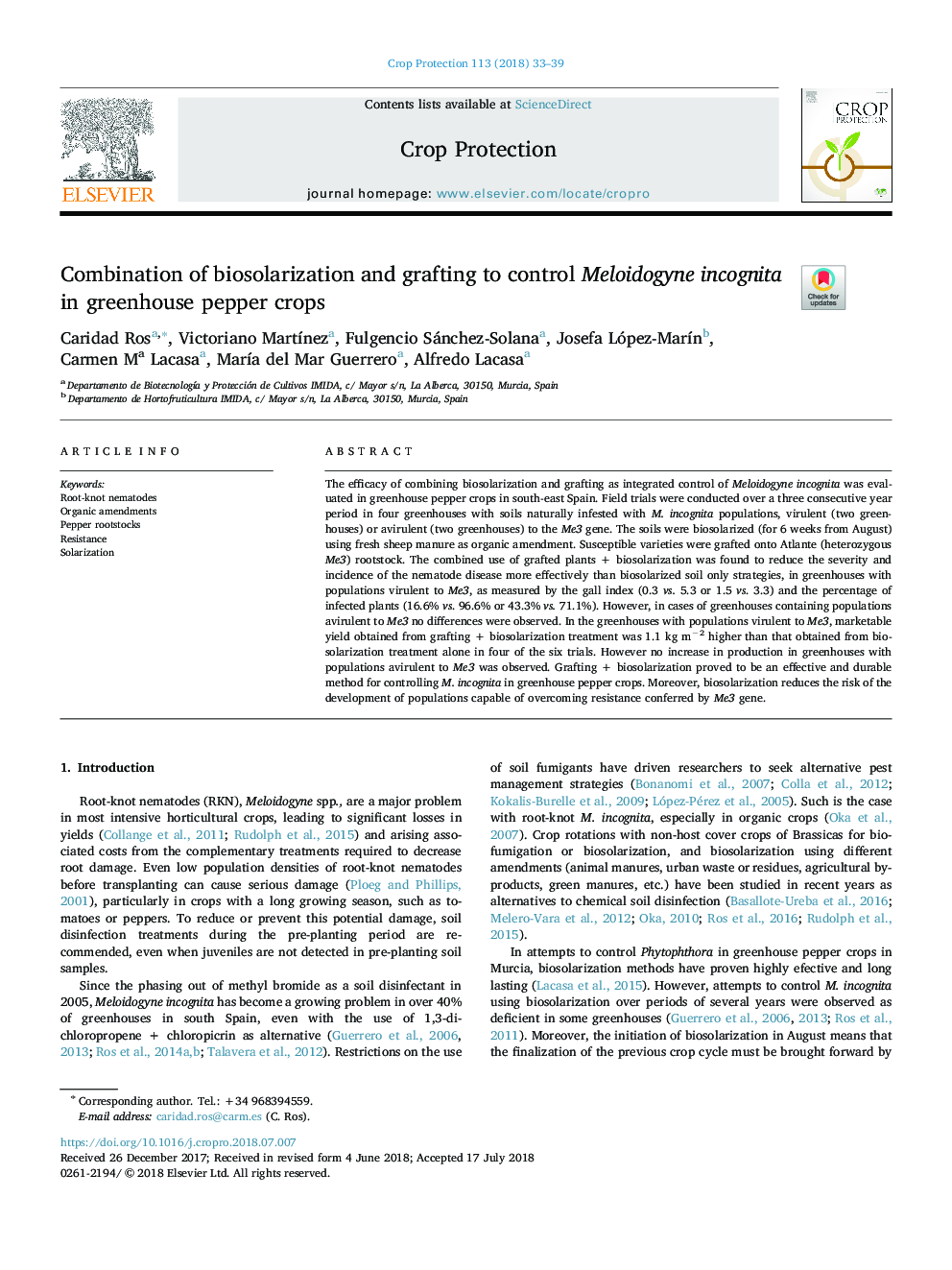| Article ID | Journal | Published Year | Pages | File Type |
|---|---|---|---|---|
| 8877872 | Crop Protection | 2018 | 7 Pages |
Abstract
The efficacy of combining biosolarization and grafting as integrated control of Meloidogyne incognita was evaluated in greenhouse pepper crops in south-east Spain. Field trials were conducted over a three consecutive year period in four greenhouses with soils naturally infested with M. incognita populations, virulent (two greenhouses) or avirulent (two greenhouses) to the Me3 gene. The soils were biosolarized (for 6 weeks from August) using fresh sheep manure as organic amendment. Susceptible varieties were grafted onto Atlante (heterozygous Me3) rootstock. The combined use of grafted plants + biosolarization was found to reduce the severity and incidence of the nematode disease more effectively than biosolarized soil only strategies, in greenhouses with populations virulent to Me3, as measured by the gall index (0.3 vs. 5.3 or 1.5 vs. 3.3) and the percentage of infected plants (16.6% vs. 96.6% or 43.3% vs. 71.1%). However, in cases of greenhouses containing populations avirulent to Me3 no differences were observed. In the greenhouses with populations virulent to Me3, marketable yield obtained from grafting + biosolarization treatment was 1.1 kg mâ2 higher than that obtained from biosolarization treatment alone in four of the six trials. However no increase in production in greenhouses with populations avirulent to Me3 was observed. Grafting + biosolarization proved to be an effective and durable method for controlling M. incognita in greenhouse pepper crops. Moreover, biosolarization reduces the risk of the development of populations capable of overcoming resistance conferred by Me3 gene.
Related Topics
Life Sciences
Agricultural and Biological Sciences
Agronomy and Crop Science
Authors
Caridad Ros, Victoriano MartÃnez, Fulgencio Sánchez-Solana, Josefa López-MarÃn, Carmen Ma Lacasa, MarÃa del Mar Guerrero, Alfredo Lacasa,
